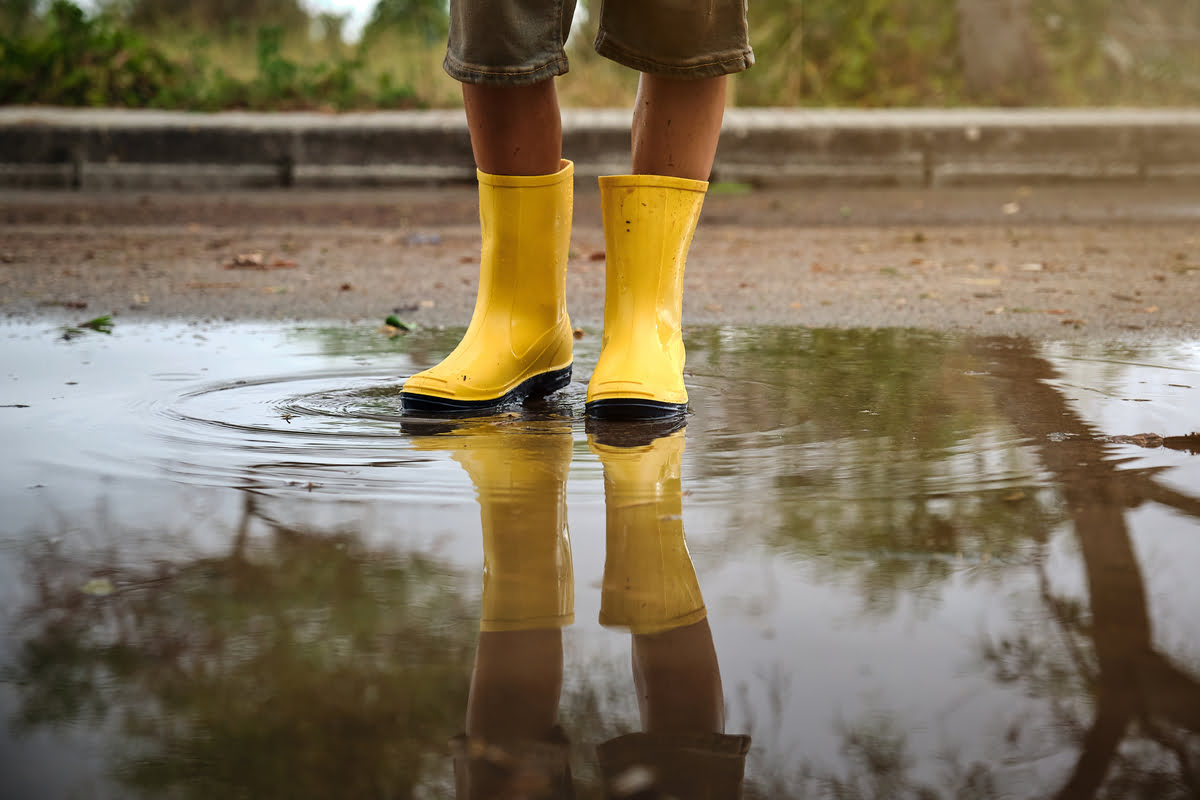BEFORE they can shoot at a hoop or goal, take a lap in the pool or step onto the mountain, Spaulding High winter sports athletes begin practices and games by having their temperatures checked and answering a set of COVID-19 screening questions.
At Goffstown High, if players were part of the hybrid group that was in school that day, they can change clothes before practice. But those who were remote must arrive in their practice gear.
Like many other schools, Spaulding and Goffstown require their players and coaches to wear masks at all times.
These are only a few of the seemingly countless measures school districts and high school athletic directors have implemented this winter to best protect their teams from contracting COVID-19 and allow them to play.
“It’s the new normal,” Goffstown Athletic Director Justin Hufft said. “It’s what we have to do to have a season.”
Trinity High is in-person for school but some students have chosen to learn remotely. Students attending in person are screened at the beginning of the school day. Remote students participating in sports are screened by Trinity athletic trainer Dave Caponigro before practice.
Goffstown’s teams play without using locker rooms, said Hufft, and there’s a scheduled 15-minute sanitization window between when one team’s practice in the gym ends and another team’s begins.
Between junior varsity and varsity basketball games, Caponigro, Trinity Athletic Director Mike Connell and assistant athletic director Mike Martinez spray down bleachers and chairs. Their other game-day responsibilities include ensuring people wear masks, and conducting temperature checks.
“Everyone that comes in the building gets temperature checked,” Caponigro said. “A lot of other teams have a form or the coach just lets us know their team has been temperature checked or COVID screened.”
The Hollis/Brookline/Derryfield cooperative team and Trinity boys hockey teams limit the number of people on their bench for games and wear masks at all times.
Londonderry, Trinity and Derryfield School are among schools that space out chairs for basketball players while they are on the bench during games. Goffstown does not have enough space to do that so half of it and the visiting team’s players spread out in the bench area and the rest are spread out in the bleachers across the court.
The NHIAA released that all tournaments “will require masks for all participants except for gymnastics, swimming, ski jumping and spirit as determined by safety reasons by sports specific committees.”
Connell, who is also Trinity’s boys hockey coach, said his players have embraced the COVID-related changes to this season.
“The alternative wasn’t an option so I have not heard any complaints,” Connell said.
Fan access, restrictions
Trinity, Spaulding, Derryfield, Londonderry and Goffstown allow each of their basketball players to invite two parents and prohibit away fans at home games.
Spectator access at hockey games vary by school and rink.
Saint Anselm College’s Sullivan Arena, which is used by the Bedford, Trinity and Goffstown boys and Souhegan and Bedford girls hockey teams, does not allow any fans at games. Londonderry allows its players to invite one fan apiece to its home games at Tri-Town Ice Arena in Hooksett.
Many high schools across the state have created ways for fans who cannot attend or do not feel comfortable going to games in person to watch them live by streaming on online platforms like Facebook and YouTube or airing them on community access television channels.
“I think everybody is doing the best they can to give people the opportunity to watch the game when it’s going on rather than tape delay,” Connell said.
Bus usage, protocols
Like in the fall, NHIAA schools are using regionally based regular-season schedules to reduce travel time to road games. This has allowed schools to either limit bus use or the number of people on the bus for road-game travel.
Londonderry Athletic Director Howard Sobolov said the Lancers use either multiple buses or a down-and-back model for away-game travel. The down-and-back approach for basketball, for example, means the bus driver first brings the junior varsity team to its game then returns to Londonderry to pick up the varsity team for its game at the same away location.
Hufft said Goffstown, which screens and temperature checks its teams before they leave for away games, uses that same model for its basketball teams and never has more than 12 kids on a bus at a time.
Derryfield Athletic Director and boys lacrosse coach Chris Hettler said when his teams use buses, there is a seven-person capacity limit and all the windows must be open during the trip.
Spaulding athletic director and football coach Kevin Hebert said his teams use buses only as a fallback. Both Hebert and Hettler encourage their athletes to either drive themselves or have parents within their household bring them to games.
“I tell coaches I’d rather have no one on buses when it’s preferable but sometimes that’s just the way we need to get kids to games,” Hebert said
Testing athletes
Londonderry, which transitioned from a remote to hybrid learning model on Jan. 19, tested its athletes on the wrestling, spirit, boys hockey and boys and girls basketball teams after the holiday break and caught a couple of asymptomatic cases in the process, Sobolov said.
Since Derryfield returned to in-person school days Jan. 19, all students and staff take a COVID-19 test every Thursday. The school had previously been in remote learning since Thanksgiving.
Varsity members of the Derryfield girls and boys basketball teams and players on the Hollis/Brookline/Derryfield co-op boys hockey team are required to remain in remote learning during their seasons.
Hettler said last Wednesday that Derryfield has had one asymptomatic case over its more than 1,000 tests.
“That tells me kids and parents are doing a great job being socially distant, taking things seriously,” Hettler said of the school’s testing. “It’s one extra layer of protection we felt would be a good benefit for the community that we can do this year.”
If a Spaulding student has any symptoms that are linked to COVID-19, Hebert said they need to be tested. Trinity is using the same approach, said Caponigro, who is also the school’s health officer. Hetter said if a Derryfield student is sick, he or she cannot return to school until taking a COVID-19 test.
“Anything from a stuffy nose to loss of taste and smell, we send kids to go get doctor’s notes before coming back,” Caponigro said. “It’s more paperwork but it’s worth it so school and sports run smoothly.”
“There’s caution with everything here because, frankly, we have to,” Hebert said.
Contact tracing
If an athlete does test positive for COVID-19, a multi-hour and sometimes all-day contact tracing effort begins.
Hufft said Goffstown starts its tracing process by interviewing the positive student and having the student recollect days during the 48-hour window of when the symptoms began. Hufft and his colleagues also watch film from all the team’s games and practices during that time frame to identify who might have been in close contact with the positive player. The state also has people who look over the game and practice film, Hufft said.
Sobolov said Londonderry’s contact tracing process includes finding out who was in close proximity to the positive player during practices, games and school, then notifying those on the team or who attended an event the player attended.
“It has to happen relatively quick to make sure you get them in time so they don’t come to school or if they’re in school, they have to leave school,” Sobolov said.
Hettler said Derryfield’s basketball teams are utilizing Hudl, a program teams use for statistics and highlights, to aid in contact tracing. Coaches can “tag” players — similar to tagging photos on Facebook — and then can calculate how many minutes they were on the court and who they played against if the opposing coach also tags the other team’s players.
“I know for me one of my goals as AD (athletic director) was once we got into this, we were going to be able to do this as accurately and safely as possible and if we try to contact trace, we’ll be able to do a really good job of doing it,” Hettler said.
Canceling, rescheduling
When games are canceled or postponed for COVID-19-related reasons, Hebert said the three biggest factors are usually testing, waiting on test results or close contact with someone who has tested positive.
Hettler said the biggest variable to him is the ability to contact trace. “Unless I as an AD feel confident it has not spread to anyone else on the team, I don’t feel comfortable sending us to play another team,” he said.
Sobolov said the Londonderry boys hockey team had a game postponed because its scheduled opponent was waiting on a test result. He has also had to cancel or postpone games because either Londonderry’s or the opposing school’s team was quarantined.
“Anything that could be a potential problem, we work well together as a Division I AD group like other leagues, I’m sure,” Sobolov said. “We communicate and err on the side of caution. We’re not going to put anybody in harm’s way if at all possible or if we have any knowledge.”
This winter season has been full of new obstacles but teams and athletes are still competing, which Hebert said he and his fellow athletic directors take pride in.
“As challenging as it is, we know the product for these kids is something they need,” Hebert said. “I think all our jobs are to maintain that as best we can.”





